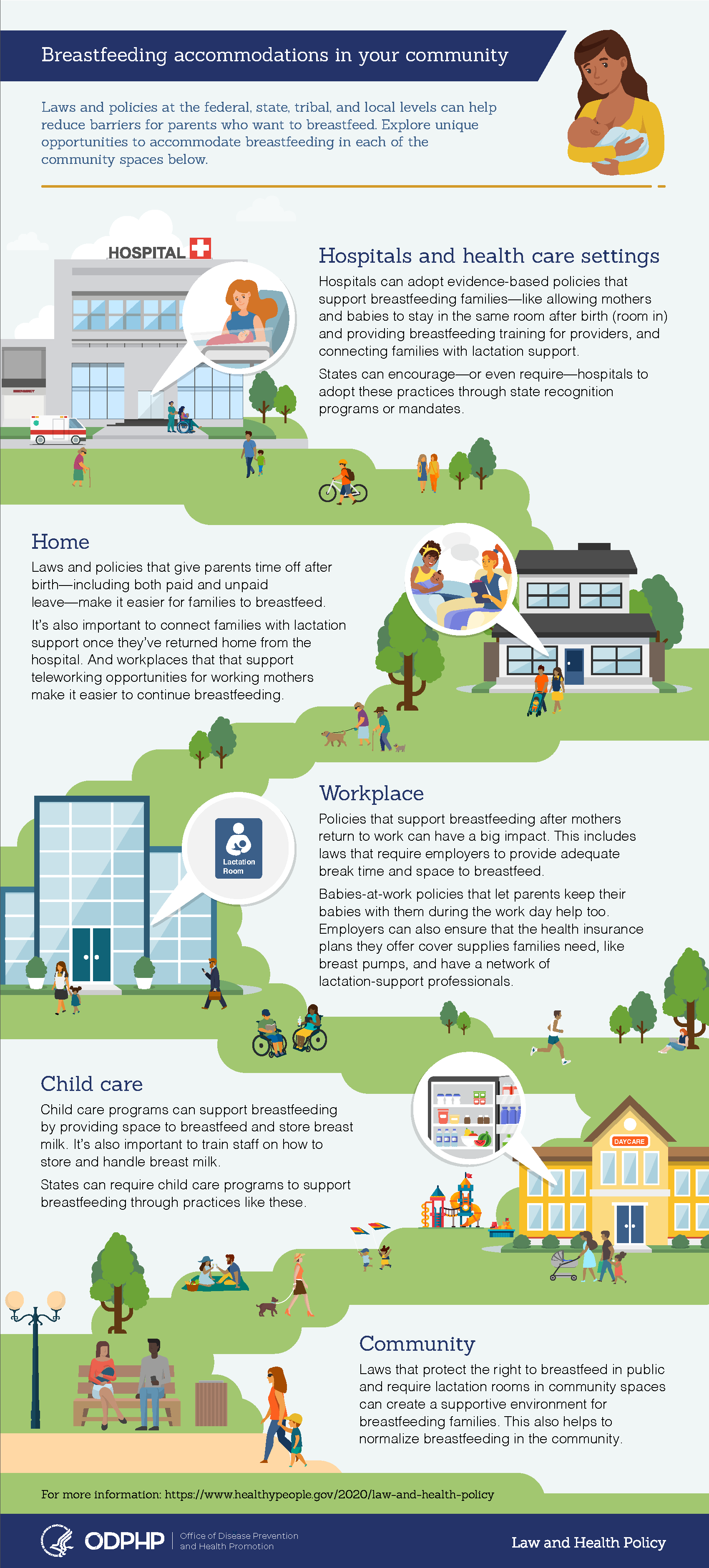Stuebe and Carolina Global Breastfeeding Institute collaborate on federal law and health policy report
May 4, 2020
As part of its Healthy People 2020 Law and Health Policy Project, the U.S. Department of Health and Human Services’ (HHS) Office of Disease Prevention and Health Promotion (ODPHP) — in collaboration with the Robert Wood Johnson Foundation, the Centers for Disease Control and Prevention (CDC) and the CDC Foundation — released its newest report today on “The Role of Law and Policy in Assisting Families to Reach Healthy People’s Maternal, Infant, and Child Health Breastfeeding Goals in the United States.”
The project seeks to heighten awareness about the role law and policy play in improving health through a series of reports and educational material related to a diverse set of Healthy People 2020 national health objectives. The new report addresses the objective to increase the rates of breastfeeding in the U.S. as part of a broader strategy to improve population health.

Catherine Sullivan

Dr. Alison Stuebe
Alison Stuebe, MD, MSc, professor of maternal and child health and distinguished scholar in infant and young child feeding at the Carolina Global Breastfeeding Institute (CGBI) at the UNC Gillings School of Global Public Health, is one of three of the report’s co-authors. Catherine Sullivan, MPH, CGBI director and clinical assistant professor, and Daina Huntley, MPH, also contributed to research for the report.
For infants, breastfeeding plays a key role in helping to strengthen the immune system and provide nutrients for healthy growth and development. In mothers, breastfeeding helps to support metabolism and can lower the risk for diabetes, hypertension and some types of cancers. Disruptions to breastfeeding are associated with adverse maternal and child health outcomes. Because of this, all major U.S. medical organizations recommend at least 6 months of exclusive breastfeeding, followed by continued breastfeeding as mutually desired by mother and infant, along with complementary foods introduced from the first year on.

An infographic from the Office of Disease Prevention and Health Promotion explores unique opportunities to accommodate breastfeeding in a variety of community spaces.
“Some 4 out of 5 U.S. women begin breastfeeding immediately after birth, but multiple barriers prevent them from meeting their infant-feeding goals,” the report states. “Public health initiatives, including legal and policy interventions and approaches designed to enable more mothers and infants to breastfeed, have the potential to markedly improve population health.”
The new report offers evidence-based solutions that community and tribal leaders, government officials, public health professionals, health care providers and more can use in their communities. Many of these solutions align with action steps outlined in The Surgeon General’s Call to Action to Support Breastfeeding. It highlights several examples of initiatives that have found success in achieving goals for the support and promotion of breastfeeding, including CGBI programs like ENRICH Carolinas and the Ten Steps to Breastfeeding-Friendly Child Care.
“The vast majority of mothers in the United States want to breastfeed,” Stuebe said. “This report outlines the kinds of policy changes that will enable more women to meet their infant feeding goals.”
Contact the UNC Gillings School of Global Public Health communications team at sphcomm@unc.edu.
